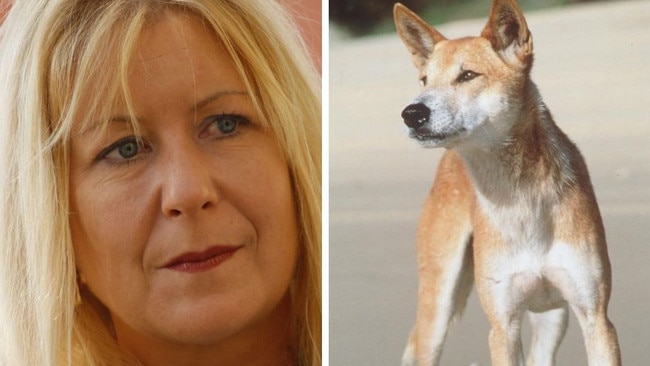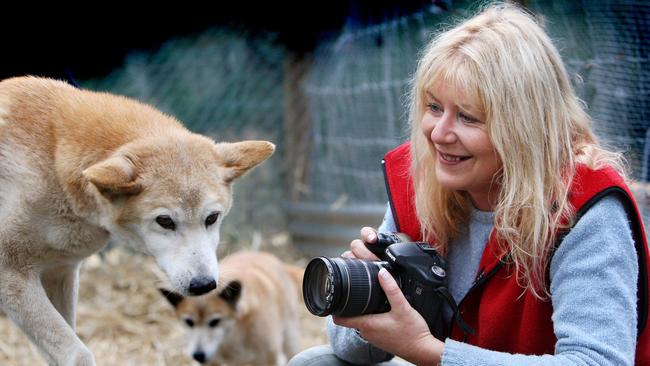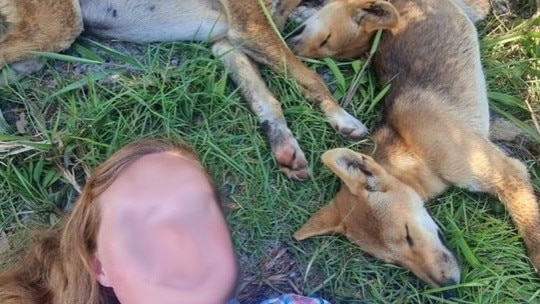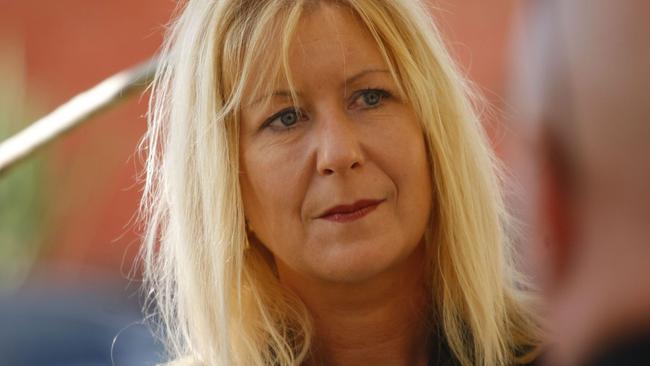Dingo expert Jennifer Parkhurst says K’Gari cull, tourist ban not answer
An outspoken dingo researcher of four decades says safe management of K’gari depends on the behaviour of people, not animals, revealing why she believes big changes have been 20 years coming.

Community News
Don't miss out on the headlines from Community News. Followed categories will be added to My News.
An outspoken advocate for protecting K’Gari’s dingoes says extreme solutions like a cull or straight tourism ban are not the answer.
Instead, National Dingo preservation and Recovery Program Vice President Jennifer Parkhurst says the solution lies in dealing with the behaviour (and number) of people, not animals.
“People are doing stupid things and not obeying the rules,” Ms Parkhurst said.
“It’s a bit of a sad situation.”
Once famously fined $40,000 for feeding pups on what was then Fraser Island, an error she has long regretted and has said was out of compassion because she believed they were starving at the time, wants to see change in the way the State Government manages dingoes and visitors.
Ms Parkhurt’s fine came in 2010 after she pleaded guilty to 46 charges under the Nature Conservation Act and Recreation Areas Management Act, with the court hearing “emotionally invested” in the pack after seeing three pups die in 2008.
She was given a nine month jail term, entirely suspended for three years.

Her comments Friday followed several high-profile attacks and close calls have occurred in the past three months.
In April a six-year-old girl who was held underwater by a dingo, and in early July an eight-year-old boy was attacked while in his father’s arms.
Video also emerged of a French tourist being nipped while sunbathing in June.
On Monday Brisbane woman Sarah Peet was attacked by a pack of four dingoes while running along the beach.
She was flown to hospital after suffering more than two dozen bites and a deep cut to her upper arm.
One of the dingoes involved was destroyed on Thursday.
This week it was also revealed two women had been fined for interacting with dingoes after uploading images onto social media.
Ms Parkhurst, who has been critical of State Government management practices on the island in the past, reiterated her position Friday.

“The management strategy isn’t working. It hasn’t been working for a while, probably 20 years or longer,” she said.
“That needs to be seriously looked at and changed.”
There was likely a greater dingo presence on the island since the catastrophic fire in 2020 and since the Orchid Beach township was fenced, she said
“It drives dingoes onto the beach, initially, when their territory has been disturbed.”
A shortage of food would have forced them to forage in new areas, and the animals would also have been driven into other packs’ territories.
Culling should be off the board, she said, as was a blanket ban on allowing people onto the island.
“I don’t think we should ban tourism because our areas rely so much on that traffic and people coming through … to get to (K’Gari),” Ms Parkhurst said.

A tourist cap could be considered with her “ideal” solution spreading tourist numbers “across the whole year”.
“The same number of people go each week all year, rather than 5000 bang on the island each (tourism period),” she said.
In the mean time however, better education was needed and should be the “number one priority”.
“For years and years we’ve been calling for dingo body language information to be put out to the public so they know whether they are being threatened or whether the dingoes are just playing,” Ms Parkhurst said.
“People are told that dingoes are going to attack them and they’re scary, and (people) are filled with fear.
“So, when a dingo approaches on the beach they might run, they might throw something at the dingo … they might act in a negative way that can actually encourage an encounter.”
“We’ve been trying to get the message out ‘a calm person equals a calm dingo’,” Ms Parkhurst said.
“If people just remain calm, stand still, it’s been scientifically acknowledged … in 95% per cent of cases if people just stand still and do nothing and remain calm … the dingo remains calm and goes away.”
“We need to really ramp up the education of people,” she said.
“Sure enough you can ramp up fines but that doesn’t seem to work very well.”





